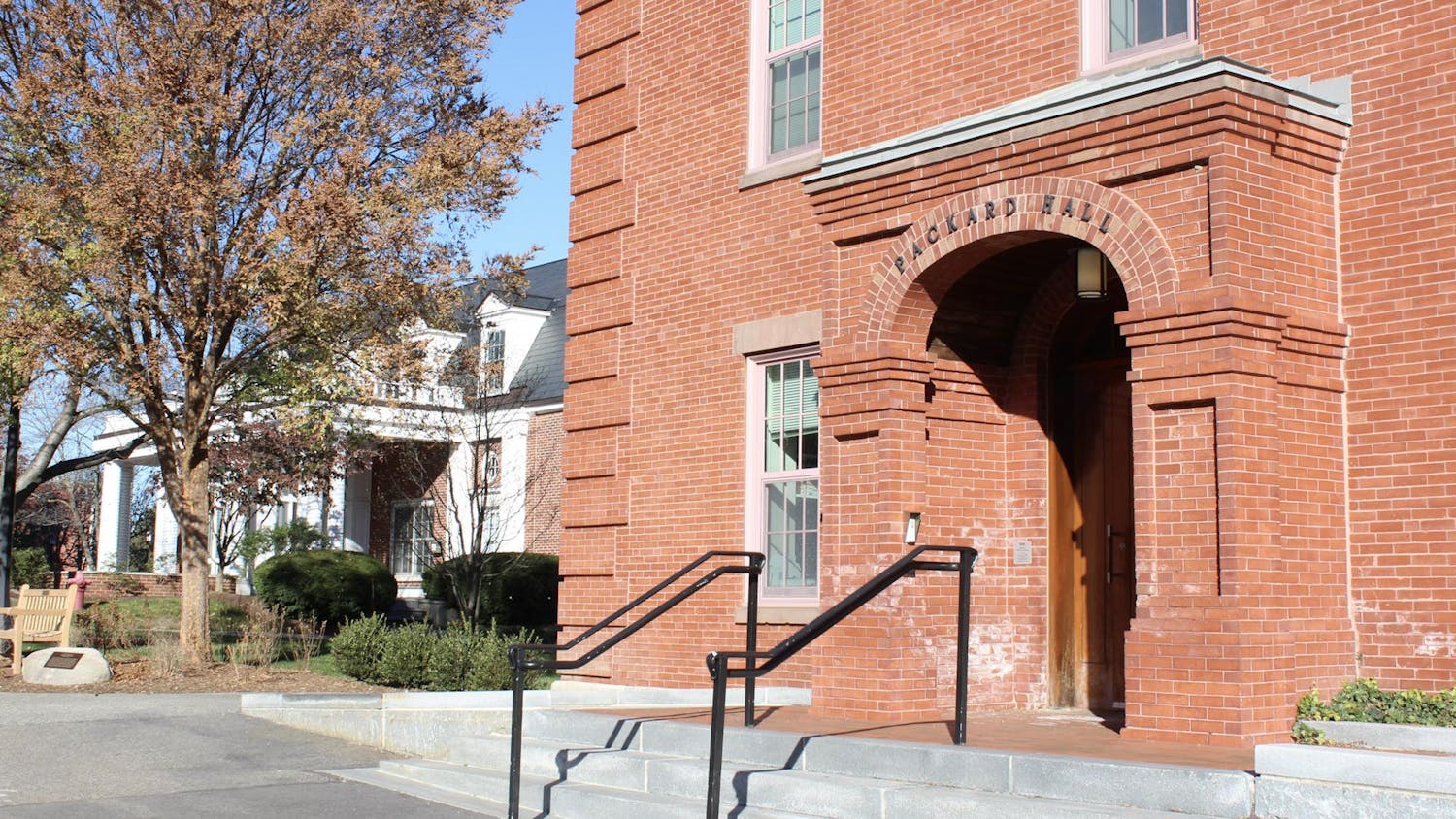The Office of Residential Life & Learning notified students on Feb. 25 that the Russian, Slavic and Central Asian Culture House will pause for the next academic year.
“Interest in the house is very low and Residential Life isn’t able to offer the Russian, Slavic, and Central Asian Culture House next year,” ResLife wrote in an email to students who had been offered a place in the house next year.
The house, located at 101 Talbot Ave., has seven beds and five current residents. Three students had confirmed placement in the house for next year before they were notified that it would no longer be offered.
According to Marina Aptekman, a senior lecturer in the international literary and cultural studies department and the faculty advisor for the house who is in charge of reviewing the applications, 11 students applied for the house before the deadline for special interest housing, down from the roughly two dozen usual applicants in the years before the COVID-19 pandemic. In the days immediately after the Jan. 23 deadline, however, she reported receiving “five or six” additional requests to live in the house from students.
ResLife confirmed that they had also heard from approximately five students but wrote in a statement to the Daily that “it was too late to change our decision because we had already made and implemented decisions about how to use residence hall space.”
Aptekman expressed frustration at what she described as a lack of “flexibility” on the part of ResLife to accommodate these students.
“I think that because there is a lack of housing on campus, they need a place for students, and they want as much as possible to take language houses and close them,” Aptekman said. “I was very upset by this because the Russian house was a very vibrant community for many years.”
Julia Appel, a senior who serves as the program assistant for the house, plans events for both residents of the house and the broader Tufts community.
“The special interest houses have more value than just housing,” Appel said. “They’re also community spaces, they’re also academic spaces. … It’s something that’s really special about Tufts. Most schools — maybe they have a Spanish or French language house — very few schools have a Russian language house. It was something that drew me to Tufts because I knew I wanted to study Russian.”
ResLife wrote that the house is “being paused for next academic year due to continued lack of student interest,” noting that “2020-2021 was the last academic year the house was at 100% occupancy for two consecutive semesters.”
Those involved with the house proposed various explanations for the decrease in applications. Ilsiia Shakirova, a junior who had applied to live in the house next year, attributes it to a general “rejection of Russian language and Russian culture” in the wake of the Russia-Ukraine war.
“A lot of Russian-speaking people aren’t actually Russian. A lot of post-Soviet countries, like Kazakhstan, Kyrgyzstan, even Tajikistan … will speak Russian, but that’s because [of] Russian colonialism onto those countries,” Shakirova said.
Russian classes have seen decreased enrollment since the war began, according to Aptekman, and events hosted by the Russian program have been impacted by anti-Russian sentiment.
Nick Rishi, a junior who lives in the Russian house this year and had planned to live there again next year, as well as Aptekman and Shakirova, pointed to an opinion column published in the Daily in October 2023 that criticized the ILCS department for hosting Russian cultural events.
Aptekman said that, because of the article, “people got upset and people got nervous, people stopped coming to the events for the time being. Then, slowly, things got back to normal.”
Rishi said that not having the house as a space to host Russian cultural gatherings next year may place more emphasis on department-sponsored events, which the department seems hesitant to coordinate, knowing that they could face backlash.
“If anything, the war in Ukraine should give more impetus to people to learn Russian because the language is not going away,” Rishi said. “And so to see the department become smaller over the years as the house is shut down, I think is just unfortunate for academia.”
Aptekman also attributes the fall in the number of applications to the house to a change in the way ResLife processes applications for special interest housing. Before the pandemic, Aptekman handled the process herself, soliciting and reading applications, interviewing students, deciding which students would be selected for the house and notifying them of their selection.
Now, Aptekman still conducts interviews, but ResLife is responsible for notifying students, which she says has led to confusion when months pass between the interview and acceptance notification.
According to Aptekman and ResLife, the house may return for the 2026–27 academic year if ResLife receives enough applications, though she said she is skeptical of whether the house will be the same. “We’re losing a wonderful language and cultural hub for the next year,” she said.
“Language is not just about practical communication, because Google Translate speaks Russian a lot better than I do,” Appel said. “Language learning is about community. It’s about connecting with other people. It’s about belonging. And I think that that is what the language houses do — they let you into that world.”






